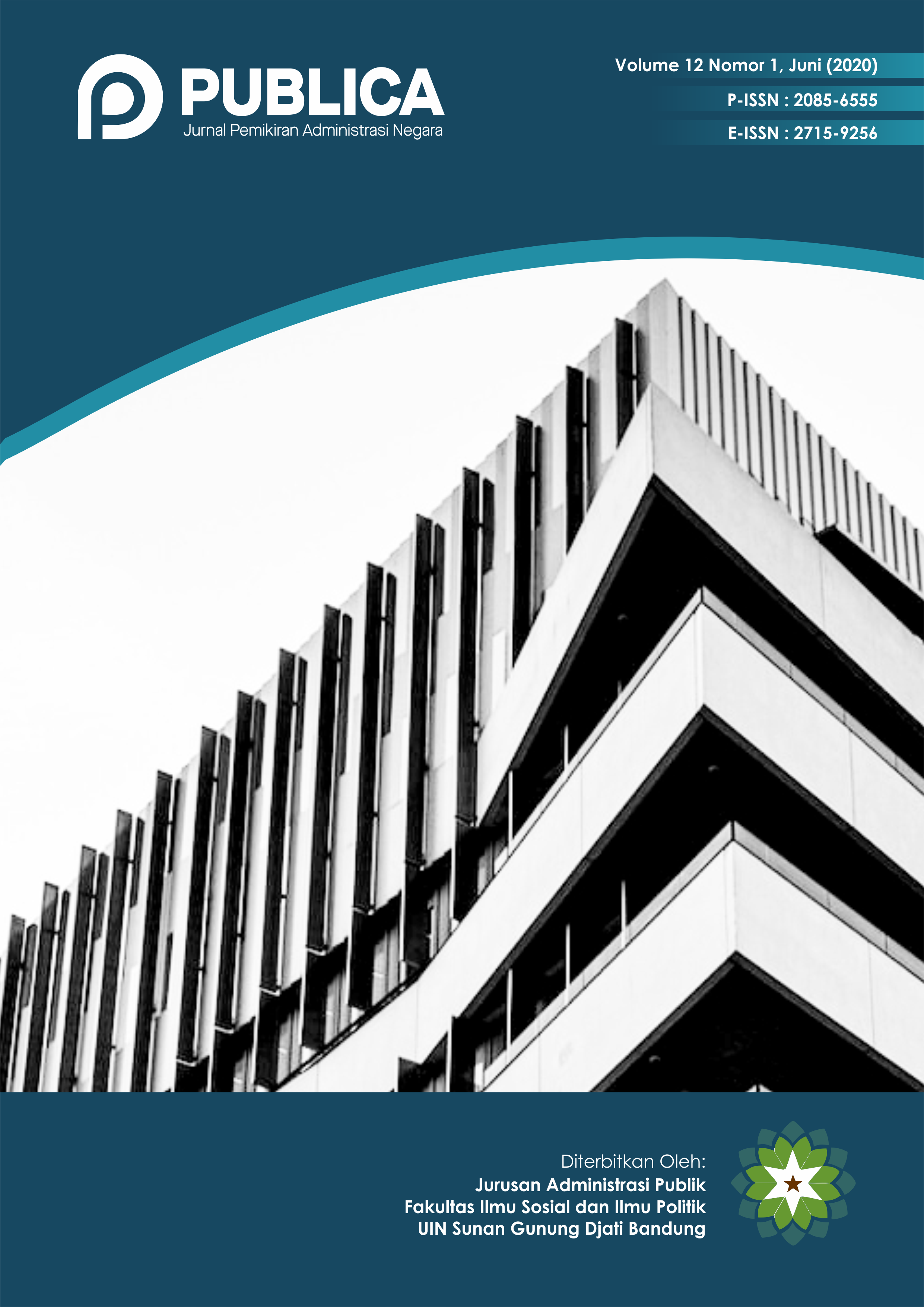Kolaborasi Karang Taruna Dalam Tata Kelola Zakat Menuju Jabar Juara
DOI:
https://doi.org/10.15575/jpan.v12i1.8645Keywords:
Collaborative Governance, Civic Engagement, Local Government, Positioning dan Zakat Brandt, Social Media.Abstract
This study aims to see and know the positioning and brand of BAZNAS Jabar, as a government agency that requires coordination, distribution, utilization, reporting of zakat management, infaq, shodaqoh and partnership partnerships with social organizations in West Java. The research method uses qualitative analysis with a SWOT analysis from the perspective of the management of the amil zakat body. This research resulted in a strategic planning in the short-term, medium-term and long-term planning as well as amil zakat management institutions to gain trust and acceptance and pride for the people of West Java. One of the efforts suggested is a collaborative activity with Karang Taruna West Java social organization. The conclusion shows, West Java Amil Zakat Board has more opportunities for improvement, distribution, optimization of utilization and reporting through collaboration with Youth Organization. To get human resources who like and have the capacity with capabilities as not the main in getting support, distribution, utilization, and approval of the management of zakat, infaq, shodaqoh through improving the muzaki and mustahik database with its successor, culture and wisdom of each region in West Java. The West Java Amil Zakat Agency should ideally have a tiered zakat education program to the community, to answer the challenges of the industry era 4.0 by implementing a governance regulation that is supported and optimizing the use of social media for social campaigns in zakat, infaq, shodaqoh, and social social assistance funds the other.
References
Abdulsyani. (2007). Sosiologi Skematika, Teori, dan Terapan. Jakarta: Bumi Aksara.
Al Munawar, S.A.H. (2003). Fikih Hubungan Antar Agama. Jakarta: Ciputat Press.
Carpenter, M.A. & Sanders, W.M.G. (2009). Stategic Management: A Dynamic Prespective, 2nd Edition. New Jersey: Pearson Printice Hall.
Damawan, R. (1999). Islam dan Transformasi Sosial-Ekonomi. Yogyakarta: Lembaga Studi Agama dan Filsafat (LSAF).
Hadari, N. (2003). Administrasi Pendidikan. Jakarta: Gunung Agung.
Huda, N., Heykal, M. (2001). Lembaga Keuangan Islam Tinjauan Teoritis dan Praktik. Jakarta: Kencana.
Iriyani, S. (2008). Penerapan Tata Kelola Perusahaan, www.elearningcommunity.blog.com, Diakses tanggal 22 April 2013.
Lindeke, L., Sieckert, A. M. (2005). Nurse-Physician Workplace Collaboration, Online Journal of Issues in Nursing.
Noorsyamsa, D. (2008). Negosiasi, Kolaborasi dan Jejaring Kerja. Jakarta: Lembaga Administrasi Negara-RI.
Rofiq, A. (2004). Fiqih Kontekstual: dari Normative ke Pemaknaan Social. Yogyakarta: Pustaka Pelajar.
Sedyawati, E. (2006). Budaya Indonesia (Kajian Arkeologi, Seni dan Sejarah). Jakarta: PT. Raja Grafindo Persada.
Sudiana, N. (2019). Amil Zakat Easy Going: Pemikiran dan Inisiatif Zakat di Era 4.0. Jakarta: IZI (Inisiatif Zakat Indonesia) Press.
Undang-Undang Nomor 23 Tahun 2014 tentang Pengelolaan Zakat
Peraturan Pemerintah Nomor 14 Tahun 2014 tentang pelaksanaan UU Nomor 23 Tahun 2011 tentang Pengelolaan Zakat.
Peraturan Menteri Sosial Nomor 25 Tahun 2019 tentang Karang Taruna.
https://ydsf.org/berita/fiqih-zakat-qTb1.html
https://uinsgd.ac.id/berita/pentingnya-fiqh-zakat/
https://www.baznasjabar.org/content/laporan-keuangan
https://crmsindonesia.org/publications/tata-kelola-perusahaan-pengertian-dan-manfaat/
Downloads
Published
Issue
Section
License
Authors who publish with this journal agree to the following terms:
- Authors retain copyright and grant the journal right of first publication with the work simultaneously licensed under an Attribution-ShareAlike 4.0 International that allows others to share the work with an acknowledgment of the work's authorship and initial publication in this journal.
- Authors are able to enter into separate, additional contractual arrangements for the non-exclusive distribution of the journal's published version of the work (e.g., post it to an institutional repository or publish it in a book), with an acknowledgment of its initial publication in this journal.
- Authors are permitted and encouraged to post their work online (e.g., in institutional repositories or on their website) prior to and during the submission process, as it can lead to productive exchanges, as well as earlier and greater citation of published work (See The Effect of Open Access).
